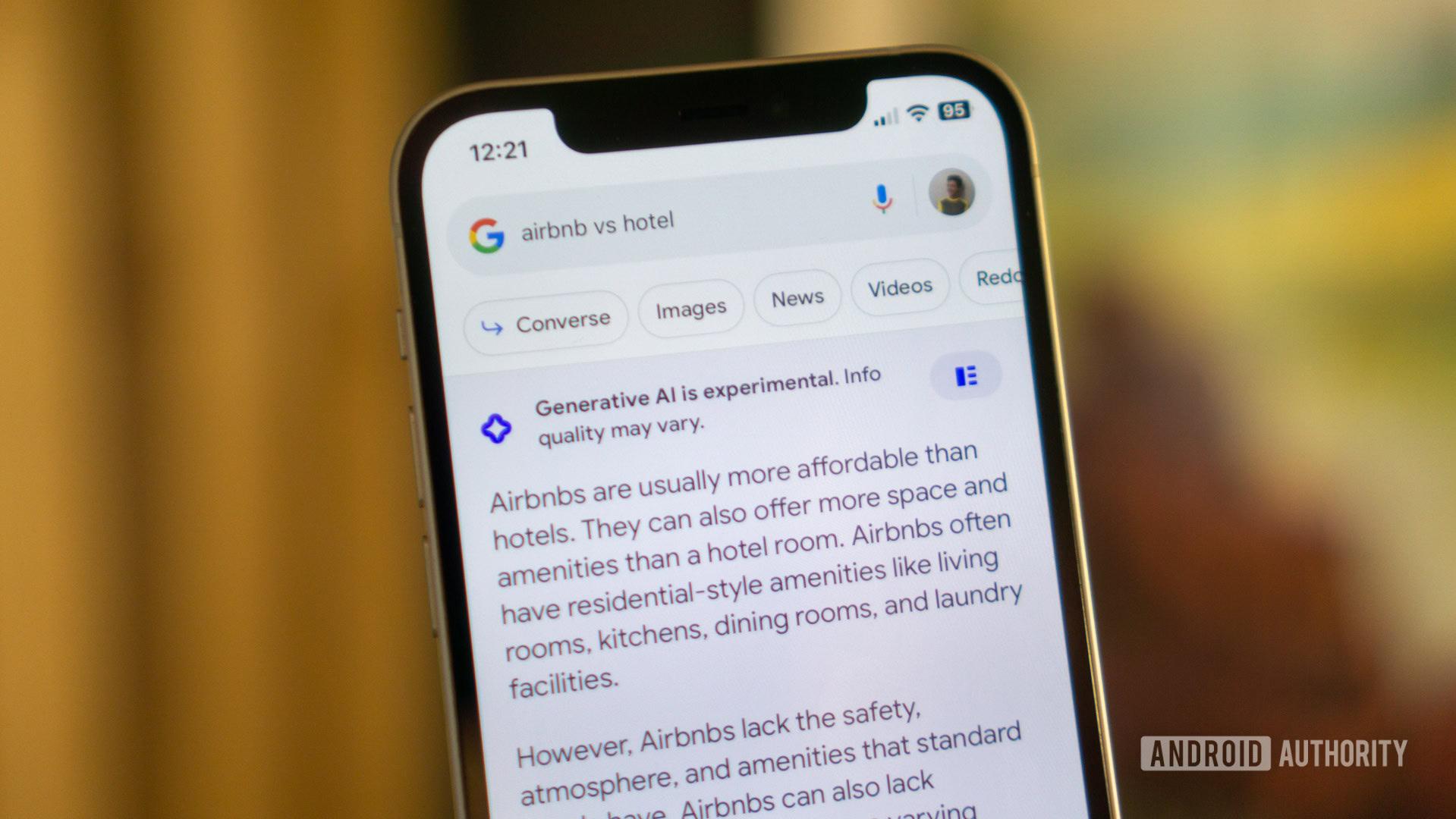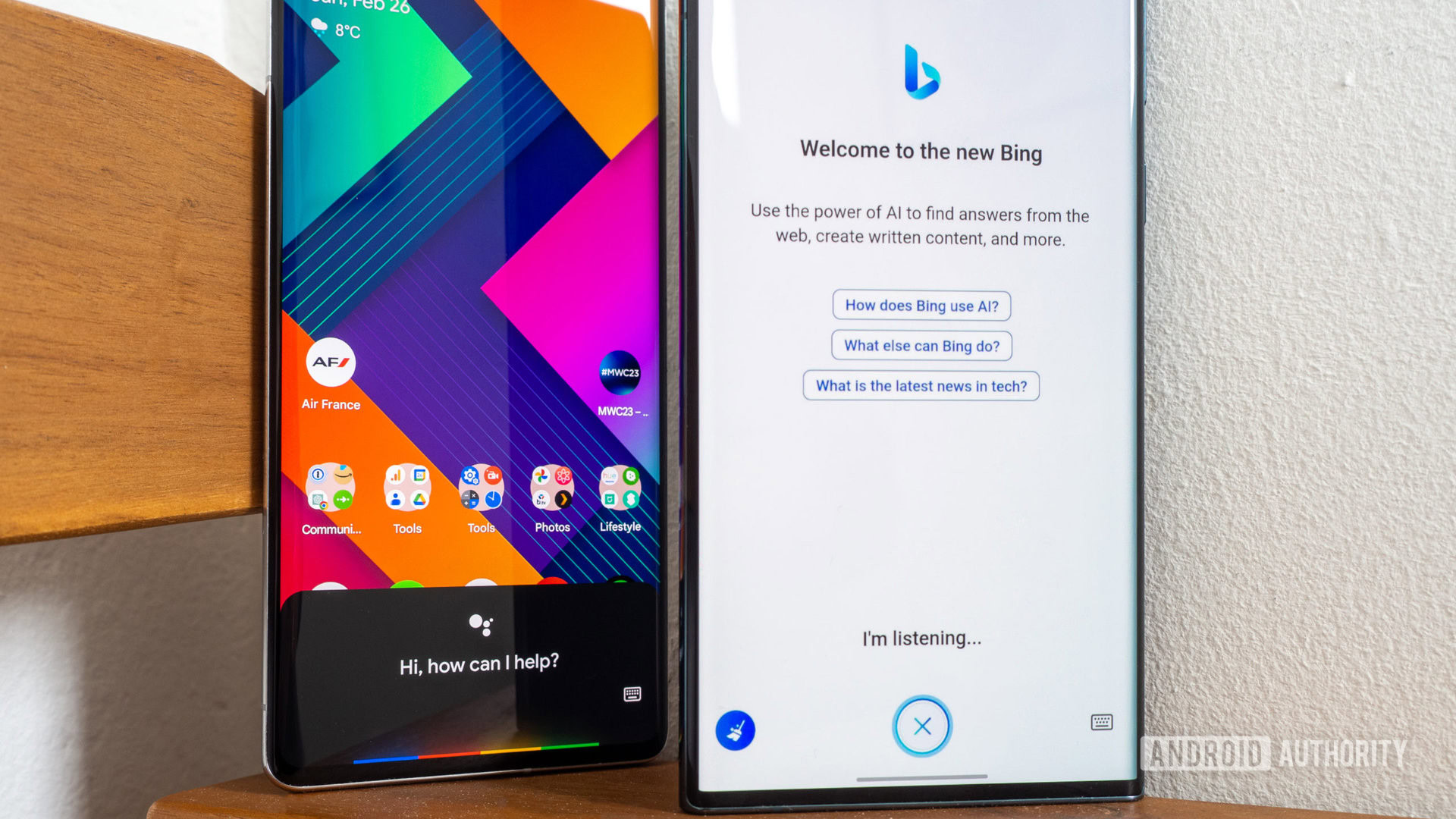Affiliate links on Android Authority may earn us a commission. Learn more.
Enough is enough: I ditched Google's broken search engine and boosted my productivity
Published onDecember 11, 2024

There’s a good chance you’ve felt shortchanged by Google in recent memory, even if you couldn’t quite put your finger on why. You type a question into the search engine, hit enter, and end up scrolling endlessly in frustration. The results are a mess — either they don’t actually answer your question, omit half of your search terms, or bombard you with untrustworthy sources. Google used to feel magical, and that experience helped it win over Yahoo and other popular search engines of the 2000s.
But today’s Google search experience is far from that magical experience. So how did we get here and is there a better way to search the internet? Absolutely, and here’s what you’re missing out on.
Why does Google suck now?

Many blame Google’s decline on the company’s desire to maximize profits, but how does providing a worse search experience to users actually make the company more money? Simple: by keeping everyone hooked on the platform. The longer you’re on the page, the more ads Google can serve you. And if you don’t find what you’re looking for, you might just rephrase your search query and try again. This gives Google yet another opportunity to serve you with a new set of ads.
Have you noticed a decline in Google's search result quality?
This may seem like a far-fetched conspiracy theory on the surface. However, thanks to the US Department of Justice’s antitrust lawsuit against Google, a series of internal emails have provided convincing evidence to back it up. In 2019, a power struggle broke out within the company over weak search growth numbers. The search team, historically isolated from the ads and finance division, was asked to boost engagement and ad revenue for the first time in the company’s history.
It’s unclear what happened next, but some hypothesize that this led to sweeping changes in search algorithms that prioritized engagement over quality. Of course, Google disputes these claims and maintains that it values quality over quantity. But the proof is in the pudding. While the email trail doesn’t reveal the outcome, the timeline does add up — criticisms of the search giant have only reached a tipping point within the past few years.
Google’s forum obsession
Conjecture aside, you may have noticed that Google has started prioritizing content from forums like Reddit and Quora. In fact, it often pushes them to the top of search results. On paper, this move makes sense — after all, forums feature real people sharing genuine insights. But in practice, it has made the search experience significantly worse.
I can see how results from Reddit makes sense for experiential questions, like “What’s the cheapest way to travel from Tokyo to Osaka?” or “How useful is a standing desk?” because you’re getting firsthand accounts from a diverse set of people. But when I’m looking for facts, Reddit threads are just noise. This means I end up sifting through half-baked opinions, outdated anecdotes, and way too many tangents before finding anything useful.
Case in point: the following screenshots show how searching for “Pixel 9 Pro review” brings up an AI Overview, followed immediately by Reddit threads discussing reviews from various publications. It’s unclear why a glorified comment section ranks higher than the content itself, but that’s the reality we live in now. The worst part? The order of results differs between Google accounts and devices, based on seemingly random parameters.
And then there’s Quora. While most subreddits have decent moderation and accuracy via user voting, I can’t say I trust Quora to the same degree. Yet, Google insists on prioritizing it at the top of my results, often pushing more credible and solid articles to the second page.
Even for search queries that would benefit from firsthand opinions, Google has overweighted results from Reddit and Quora to such an extent that it has essentially killed off many specialized forums. Many of the home theater and audio forums I once frequented have now turned into ghost towns as their search discovery nosedived. Meanwhile, subreddits in these niches have seen explosive growth, but without the same level of structure as a forum. This means they’re chaotic, harder to navigate, and often lack the moderation needed to keep discussions focused.
Google is centralizing the internet around Reddit and Quora.
Google favoring large platforms like Reddit, Pinterest, and Quora isn’t just bad for individual searches today — it’s reshaping the way knowledge is shared online for the future. I suspect we’ll all mourn the death of independent forums in a few years from now, but the damage will be irreversible by then.
As for the larger problem of searching the internet, the situation remains grim but there are still ways to reclaim some control from Google’s flawed search empire.
Bing: Actually better than Google now?

Google commands 90% of the world’s search engine market share, but that doesn’t mean its competitors are unusable or even inferior. When Microsoft rolled out its GPT-powered chatbot in early 2023, I switched to Bing and ended up sticking with it, even to this day.
Back then, I wrote about how Bing’s search results seemed to be at least on par with Google. Nearly two years later, I’m glad I made the decision to switch — Bing’s results may not be perfect, but they’re often significantly better than whatever Google has to offer these days. Take a look for yourself:
In this comparison, Bing is clearly the only one that offers a traditional search engine experience. The results are clean and relevant — right at the top, we get a news article addressing the query head-on. And scrolling past the videos section, we see that the rest of the results point to reputable sources as well.
Google, on the other hand, has an AI Overview that attempts to answer the question while shunting the sources to the side like an afterthought. A series of Reddit threads then take up the top spot on the result page, even though many of these discussions link directly to authentic information sources. Scrolling past the fold does not help in Google’s case either — you get an unhelpful “People also ask” suggestion, followed by Quora links, and yet another “What people are saying” box. This is not an isolated example, either — Bing respects my time, while Google makes me hunt for anything useful.
Unfortunately, Microsoft’s search engine suffers from societal stigma, so many might hesitate to make the jump over, but I do believe it’s in better shape than Google at the moment.
DuckDuckGo and Kagi: The final frontiers of search

Ultimately, Microsoft and Google are both public companies and headed in the same direction: profitability above everything else. Luckily, there are still other alternatives.
DuckDuckGo offers a cleaner interface and various privacy-preserving features. My favorite feature, however, is the built-in shortcuts that allow you to search websites directly. For example, “!w Samsung” will directly bring you to Wikipedia’s results for the Korean company. You can even use the !g shortcut to launch a Google search if you’re not satisfied with the results.
Kagi is a paid search engine that doesn't put advertisers' interests ahead of your own.
If you want to get rid of the ad-based model entirely, Kagi is a relatively new player in the search engine race that promises to deliver on Google’s broken promises. The downside? You have to pay a monthly subscription fee. But in return, you get high quality search results that aren’t influenced by advertising keywords whatsoever.
Kagi also has a host of other cool features that Google will likely never implement. Hate listicles? The search results page groups them together instead of each one taking up valuable real estate on your screen. Want to block certain domains from showing up in your results? You can do that. And for more granular control, you can prioritize, deprioritize, or pin certain websites. In fact, Kagi maintains a public leaderboard of websites that users most commonly block or prioritize on the platform.
Kagi’s trial offers 100 searches for free, so you can decide if it offers enough value before paying for it. However, at $10 per month, it’s admittedly a steep ask for most people and won’t challenge Google’s dominance anytime soon. Still, Kagi’s very existence is proof that the once-beloved search giant is quickly falling out of favor among developers and those of us that search the internet for a living.